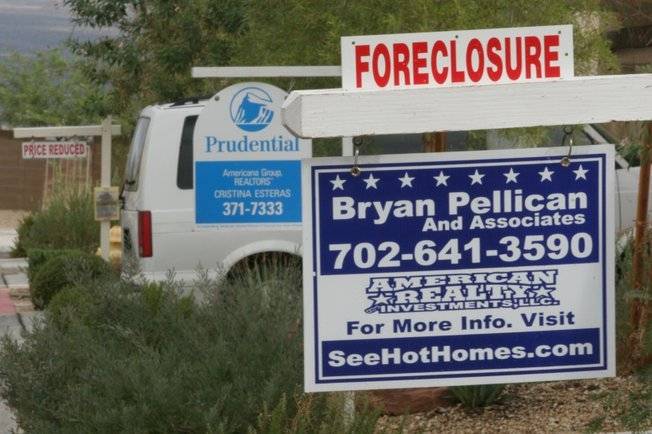Wednesday, Dec. 14, 2011 | 2 a.m.
Foreclosure Mediation Under Fire
The state's Foreclosure Mediation Program is under fire from different angles. A Reno judge is deciding one lender's claims that it violates the separation of powers. While Wells Fargo is challenging that same Reno judge's right to modify a borrower's mortgage. Plus, we hear from the woman behind the mediation program, former Assembly Speaker Barbara Buckley.
In today's Sun
Related stories
The Nevada Supreme Court is in the unusual and uncomfortable position of deciding whether a state program that it operates is constitutional.
The court has since 2009 operated a state mediation program, providing a forum in which homeowners and lenders see if they can negotiate a deal to avoid foreclosure. The Legislature created the program after the housing bubble burst and the state became the nation’s foreclosure capital. It has so far served more than 12,000 Nevada homeowners.
Now, the program is under attack by Wells Fargo Bank, which was hit with a $30,000 sanction for failing to negotiate in good faith during a mediation session with a Reno couple.
Duke and Tina Renslow borrowed $184,000 in 2003 to buy a home with monthly mortgage payments of $1,708. When they fell behind in their payments, a notice of default was filed. The couple sought mediation to get their payments reduced.
During mediation, Wells Fargo offered to reduce their payment by $260. The bank says the offer was refused.
When no agreement could be reached, the Renslows filed suit.
District Judge Patrick Flanagan found that Wells Fargo failed to negotiate in good faith because its representative at the mediation session did not have authority to modify the loan.
Flanagan then ordered the monthly housing payment reduced to $1,145; lowered the interest rate on the loan to 2 percent, 1.25 percent below the prime rate in 2009 and imposed $30,000 in sanctions against Wells Fargo to be paid to the Renslows.
The judge also ruled the bank should not attempt to collect late fees and penalties.
The bank has appealed the case to the Nevada Supreme Court. And in its opening brief, the bank says placing the program under the court violates the constitutional doctrine of separation of powers. (Wells Fargo has been joined in its legal battle by United Trustees Administration, an organization composed of foreclosure trustees.)
The bank’s attorneys also argue that Flanagan’s decision in District Court violates the constitutional protection against the taking of real property and other private property for public use without compensation. The law is invalid, the lawyers say, because it gives the courts “sweeping authority” to modify loans and “substantially impairs a contractual obligation.”
Attorneys for the Renslows maintain a 1967 Supreme Court decision allows the court to rule on such issues. Attorney Carole Pope says the Supreme Court is the proper venue for the mediation program because of justifiable controversy inherent in the foreclosure process.
Pope also says there is no “taking” of property by the Renslows. Wells Fargo will receive all the money it loaned the couple, it will merely be paid over a longer term, thus losing part of the interest charged on the initial contract.
“The only reason for modifying the note is Wells Fargo’s bad faith participation in the Foreclosure Mediation Program,” Pope said. “This case illustrates the need for imposing penalties to assure that lenders participate in the program to help Nevada’s citizens.”
The mediation program has been a point of controversy since its inception in 2009.
Homeowners and their advocates have accused banks of not wanting to reach an agreement. Figures supplied by the Supreme Court say 50 percent of homeowners participating in it have reached agreements with their banks.
But Assembly Majority Leader Marcus Conklin, D-Las Vegas, wondered last month whether the Supreme Court can be unbiased as it decides this case because it collects fees to administer it.
No hearing date has been set for the case.


Join the Discussion:
Check this out for a full explanation of our conversion to the LiveFyre commenting system and instructions on how to sign up for an account.
Full comments policy